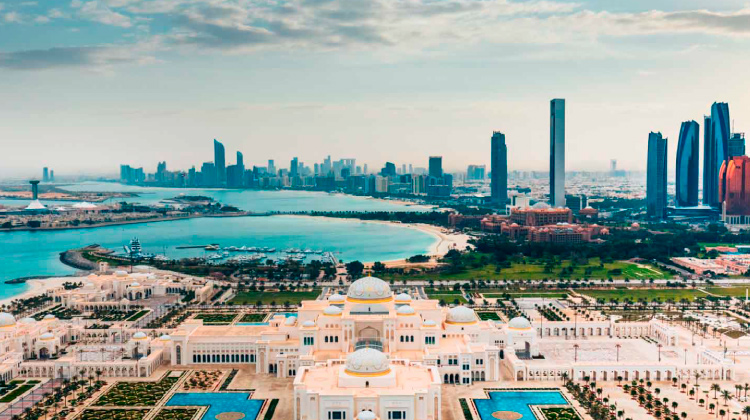Ruling Family And Governance

His Highness Sheikh Mohamed bin Zayed Al Nahyan, the President of the UAE, is also the Ruler of Abu Dhabi and the Supreme Commander of the UAE Armed Forces.
Abu Dhabi has an Executive Council, under which separate departments function like ministries. It also has several autonomous agencies with clearly specified powers and a 60-member National Consultative Council comprising representatives of the main tribes.
Al Ain and Al Dhafrah regions of the Emirate are headed by the ruler’s representatives, while its main cities, Abu Dhabi and Al Ain, are administered by municipalities. Al Dhafra Municipality is a government authority that is independently responsible for providing public services to any developmental project and all relevant regulations in the western region. The western region includes Sheikh Zayed city, Al Mirfa, Liwa, Al Sila, Ghayathi, and Delma.
The Government of the UAE
Presidents
The late Sheikh Zayed bin Sultan Al Nahyan was the first President of the UAE and is known as the Father of the Nation. He served this position from the formation of the UAE on 2 December 1971 until he passed away in 2004.
The late Sheikh Khalifa bin Zayed Al Nahyan was the second President of the UAE. He held this position in 2004 and till he passed away on 13 May 2022.
His Highness Sheikh Mohamed bin Zayed Al Nahyan is the current President of the UAE. He took this position on 14 May 2022. He is also the Ruler of Abu Dhabi and Supreme Commander of the UAE Armed Forces.
Political System
The UAE is a constitutional federation of seven Emirates. The federal system of the UAE government includes:
- The Supreme Council
- The President and the Vice-President
- The Cabinet
- The Federal National Council
- The Federal Judiciary
For further information, Read more
The UAE is a federation of seven Emirates governed by a national constitution. There are three levels of Government: Federal, Emirate and Municipal. At the community level, there are also traditional open majlis (community gatherings) where people can connect directly with leaders. The complexity of municipal and local administration depends on the size of the Emirate but the relationship with the federal government is dictated by the constitution.
The seven Emirates are: Abu Dhabi, Dubai, Sharjah, Ajman, Umm Al Quwain, Ras Al Khaimah and Fujairah. While the UAE has a prime minister and federal president, each Emirate has its own ruler who oversees the local governments.
The rulers of each of the Emirates sit on the Federal Supreme Council. It has the final say on federal policy such as laws relating to education, foreign affairs, and defence. The Council meets quarterly, and the rulers of Abu Dhabi and Dubai have power of veto over decisions. Every five years, it elects the President and the Vice-President.
- The Council of Ministers or Cabinet is led by the Prime Minister and is the executive authority of the UAE federation.
- The Federal National Council (FNC) is the consultative body and has both legislative and supervisory roles. It has 40 members in total, half of whom are elected by specific electoral bodies and the other half appointed by the FNC. The term of membership is four years.
The Judiciary
The independence of the judiciary is guaranteed by the UAE Constitution and separated from the executive and legislative powers. It is a legal system, but with the core principles based on Sharia law.
- The Federal Courts include the Supreme Court based in Abu Dhabi which deals with law set out in the Constitution such as disputes between Emirates or with cases referred from the local courts.
- Local court systems are in place in some of the Emirates. Abu Dhabi has a local court structure consisting of: Courts of First Instance, Courts of Appeal and the highest judicial institution, the Court of Cessation.
- Sharia Courts focus primarily on civil cases between Muslims, however, they may sometimes hear appeals in criminal matters.




